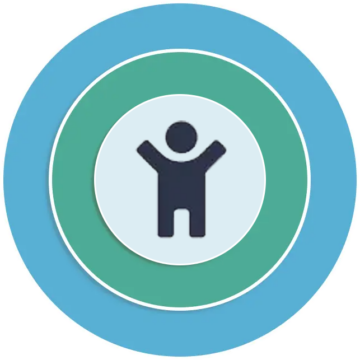Five Trends in Public Thinking About the Connections Between Early Childhood Development and Climate Change
This brief offers insights and messaging guidance to help advocates and communicators build public understanding of how climate change affects early childhood development.

This brief, developed in collaboration with the FrameWorks Institute and the Center for Climate, Health, and the Global Environment at the Harvard T.H. Chan School of Public Health (Harvard Chan C-CHANGE), provides an overview of current public mindsets on the connections between climate change and early childhood development. It offers guidance on how to more effectively communicate about this important issue.
Whether you’re developing communications for your organization, speaking with the media, or working with policy leaders, this brief can support your efforts to connect the dots between children’s development and climate change and build momentum for action that prioritizes children’s health and well-being.
Background
Climate change is already affecting the environments where young children live, grow, play, and learn. Children, particularly those in communities facing structural inequalities, are among those most at risk of long-term harm from climate change.
Despite the risk of negative consequences of climate change for children’s health and development, this is not an issue that the public is widely aware of, nor is it a major focus of climate-related policy or media coverage. A significant shift in public thinking on this issue is needed in order to develop policies and programs that support young children, their caregivers, and communities in our warming world.
While the American public has some mindsets that present a challenge to advocates and other communicators, we also find that the absence of established thinking and discourse on this issue presents a significant opportunity to talk about it in a way that can build greater public understanding. To help advocates and communicators fill this gap effectively, we partnered with FrameWorks and Harvard Chan C-CHANGE to research current public mindsets, identify common challenges, and offer evidence-based strategies to build understanding and drive action.
Five Trends in Public Thinking About the Connections Between Early Childhood Development and Climate Change highlights key findings and provides initial recommendations for how to more effectively communicate the connections between children’s development and climate change. It is paired with a full research report, Connecting Early Childhood Development to Climate Change: Insights for Communicators, which includes a deeper exploration of cultural mindsets and a summary of what this research means for advocates and others who are communicating about climate change and early childhood.
This work is part of the Communicating the Connections Between Climate Change and Early Childhood research project, a collaboration with the FrameWorks Institute and Harvard Chan C-CHANGE.
Further research will be needed to explore how people’s thinking can shift in response to framing strategies that are designed to effectively communicate about young children and climate change. If you are interested in supporting the next phases of this work, please contact Corey_Zimmerman@harvard.edu to learn more.
 Developmental Environments
Developmental Environments